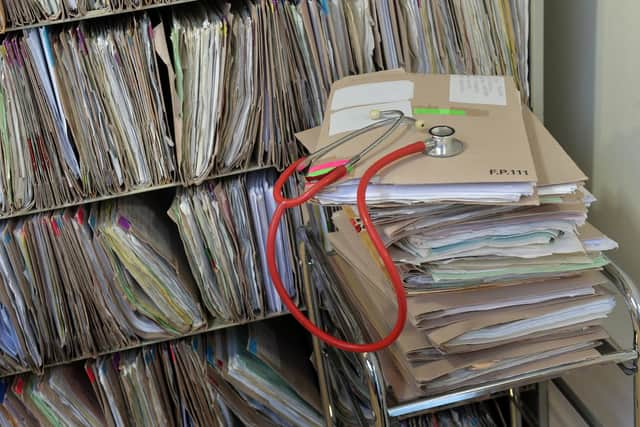Revealed: GP practices in Northumberland where most patients face long waits
and live on Freeview channel 276
The Government said the new data published by NHS Digital – which gives detailed information on appointments and waiting times for individual GP practices across England – will help patients "make a more informed choice about the practice they choose to visit".
But the move has not been welcomed by everyone, with the Royal College of GPs criticising the lack of context around how different practices operate.
Advertisement
Hide AdAdvertisement
Hide AdA total of 212,304 appointments took place at GP practices in the former NHS Northumberland CCG area in October.


At least 50,044 (24%) of these had taken place more than a fortnight after being booked, and of those, 16,360 (8%) saw patients wait longer than 28 days.
In Northumberland, the practices with the highest proportion of appointments occurring after a fortnight were:
Coquet Medical Group – 52.2% of 9,440 appointments took place more than two weeks after they had been booked in October
Humshaugh and Wark Med Grp – 49.4% of 2,643 appointments
Prudhoe Medical Group – 43% of 4,522 appointments
Marine Medical Group – 42.6% of 6,803 appointments
Forum Family Practice – 42.3% of 6,867 appointments
At the other end of the scale:
Advertisement
Hide AdAdvertisement
Hide AdWooler Health – just 4.7% of 4,353 appointments saw patients wait longer than a fortnight in October
Belford Medical Practice – 7.6% of 2,883 appointments
Ponteland Medical Group – 9.7% of 5,012 appointments
Seaton Park Medical Group – 11.3% of 9,632 appointments
Northumberland Health – 11.7% of 3,556 appointments
NHS Digital cautioned that GP workloads can be affected by several factors such as the demographic of patients registered at the practice, how deprived the area is and the number of care homes the practice offers services to.
The new practice-level figures come as part of the Government's "plan for patients", which includes a new ambition for every patient to get an appointment at their GP practice within two weeks.
However, the RCGP said the Government should address the root cause of GP pressures – including recruitment and retention of doctors – "instead of lumbering a struggling service with new expectations".
Advertisement
Hide AdAdvertisement
Hide AdChair Professor Kamila Hawthorne said: "A record 36.1 million consultations were delivered in October, almost 40% of these on the day they were booked and more than 71% delivered in-person, the highest proportion since before the pandemic."
Prof Hawthorne said GP workloads have escalated while the number of fully qualified full-time equivalent GPs has fallen by 719 across England since 2019.
"GP teams are just as frustrated as patients when they don’t have the resources and time to deliver the high standard of care to patients they want to, and in some areas where the pressures are even greater, this is happening more," she added.
Meanwhile, Rachel Power, chief executive of the Patients Association, said primary care should engage with patients and find out their priorities, such as whether face-to-face appointments are priority for them, to help the NHS improve triage and resource prioritisation.
This week, the Government set out plans to overhaul NHS pension rules in an attempt to retain more senior doctors in the service.